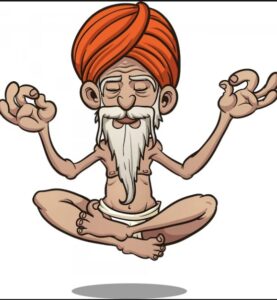Lipsa Mohanty
Many people think that India is simply too big to visit in a lifetime. The nation has much to offer tourists with its fascinating landscape, rich cultural heritage, varied history, stunning architecture, and delectable cuisine. However, much like anywhere else in the world, there are well-known con artists who prey on tourists in an attempt to make a little more money.
It is difficult to visit India and not run into at least a scam artist or someone attempting to defraud you. While being extremely vigilant and cautious is a good thing, being paranoid is not. Whether you are a foreigner, or whether you are an Indian visiting another part of the country, make sure that you stay wary of these five scams that tourists fall easy prey to:
Avoid people who try to “help” you carry your bag anywhere:
One of the most prevalent visitor scams in India is probably waiting for you when you get to the airport: the friendly bag carrier. Regretfully, this is among the most well-known travel scams to be aware of when visiting India. Even though it might just cost you ten or twenty rupees, you should be the only one handling your suitcase since you never know what they might do.

Fake gift or charity scams:
It’s possible to come across a “baba” at a holy site who might offer to bless you and tie a string of blessings on your wrist; it’s apparent to consider that as a gift. However, it is likely that they are going to ask for money after tying the alleged gift, and it will be very difficult to escape the situation unpaid. Some people may pose as officials of charitable organizations and approach tourists to ask for donations. It is vital to study the organizations that you choose to help and contribute to in order to ensure that your money reaches actual people in need.

Hotel Frauds:
Travellers may fall victim to lodging scams, especially in popular tourist destinations. Some hotels could have enticing internet deals, but when visitors get there, their accommodations may turn out to be subpar. To avoid this, book your accommodations through reliable websites or travel companies and check through previous guests’ feedback. Additionally, to ensure availability and to avoid misunderstandings, it is recommended to confirm bookings directly with the lodging establishment prior to departure.
Begging thieves:
Witnessing a “mother” clutching a sleepy baby in a carrier and asking for money at a traffic light in India can be extremely upsetting. However, these babies are often put to sleep and rented out for an entire day. A common begging tactic is to ask visitors to purchase powdered milk, if not money, so they may feed their child. The beggar might point you in the direction of a nearby store as well. But it is best to avoid such beggars, as it is most likely a scam.

The auto or taxi metre fraud:
This is undoubtedly one of those most common situations in which you discover that the metre is broken or that none exists at all! In these circumstances, the driver would most likely request a flat fee from you that is significantly more than the real fare. There are even instances where the metre runs quicker than the car so that they can claim a higher fare.
In actuality, relatively few Indian scams pose a threat to your personal safety; the majority only aim to steal your money. Avoid falling for these travel scams to keep yourself safe while visiting India! it is best to avoid questions like “Which country are you from” or “Is this your first time to India?” These are most likely just con artists trying to get you into a conversation that could end badly.
